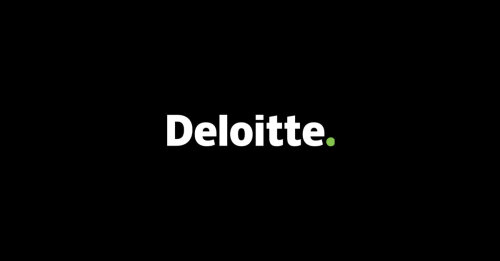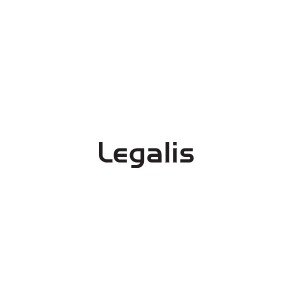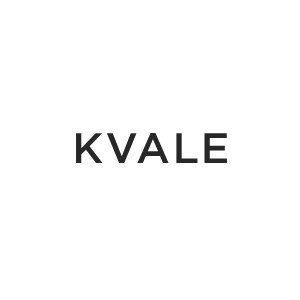Best Public-Private Partnerships (PPP) Lawyers in Oslo
Share your needs with us, get contacted by law firms.
Free. Takes 2 min.
List of the best lawyers in Oslo, Norway
About Public-Private Partnerships (PPP) Law in Oslo, Norway
Public-Private Partnerships (PPP) are collaborative agreements between public sector authorities and private entities to finance, design, implement, and operate projects and services that have traditionally been provided by the public sector. In Oslo, Norway, PPP arrangements are commonly used in the development of infrastructure projects such as transportation, energy, schools, and healthcare facilities. The main goal is to combine public oversight and social responsibility with private sector efficiency and innovation. The legal framework for PPPs in Oslo is shaped both by Norwegian national law and by guidelines from the European Union and the European Economic Area, which Norway is part of through the EEA Agreement.
Why You May Need a Lawyer
Engaging in a Public-Private Partnership is a complex legal undertaking that involves significant financial commitments, risk allocation, and long-term contractual obligations. You may need a lawyer in the following situations:
- You are responding to a public tender for a PPP project in Oslo
- You are negotiating or drafting a PPP contract or agreement
- You need guidance on regulatory compliance and risk management
- You are handling disputes or breaches of contract within a PPP arrangement
- You are assessing the legal and financial implications of transferring or terminating a PPP project
- You need advice on project financing, funding models, or public procurement procedures
- You are dealing with issues related to intellectual property, insurance, or employment within a PPP framework
A lawyer with expertise in PPPs in Oslo can help safeguard your interests, ensure compliance with all relevant legislation, and facilitate a smooth collaboration between public and private partners.
Local Laws Overview
PPP projects in Oslo, Norway are governed by a combination of local, national, and European legislation. Key legal aspects include:
- Public Procurement Laws: PPP projects must comply with the Norwegian Public Procurement Act, which is aligned with EU directives on public procurement to ensure transparency, fairness, and competition in awarding contracts.
- Contract Law: Norwegian contract law governs the drafting, negotiation, and enforcement of PPP agreements. These contracts are highly complex and must clearly set out the rights, obligations, and risk allocation between the parties.
- Financing Regulations: The structure of financing in PPPs must comply with regulatory requirements for public spending and private investment, including rules on state aid and tax matters.
- Concession Models: Concessions in PPP projects are regulated, particularly when the private party is granted special rights to operate or collect revenues from public assets or services.
- Project Monitoring: There are extensive requirements for reporting, transparency, and audit in PPP projects, overseen by local and national supervisory bodies.
- Environmental and Planning Laws: All PPP projects must adhere to Norwegian environmental, planning, and zoning laws, which impact everything from project design to operational requirements.
Because the legislative landscape is subject to changes and may include specific Oslo municipality guidelines, professional legal advice is essential at every stage of a PPP project.
Frequently Asked Questions
What is a Public-Private Partnership (PPP) in Oslo?
A PPP in Oslo refers to a long-term cooperative arrangement between public sector authorities and private companies, typically used for infrastructure development or delivering public services.
Which laws govern PPPs in Oslo?
PPPs are primarily governed by the Norwegian Public Procurement Act, contract law, concession law, and relevant EU and EEA directives, alongside sector-specific regulations and Oslo municipality guidelines.
Who can participate in a PPP project?
Both domestic and international private companies, consortia, or investors may participate in PPPs in Oslo, subject to eligibility requirements under Norwegian law.
How are PPP contracts awarded?
Contracts are typically awarded through competitive public procurement processes intended to ensure fairness and the best value for public funds.
What are common risks in PPP projects?
Common risks include construction delays, budget overruns, performance failures, changes in law, demand shortfalls, and disputes over contract interpretation or termination.
How is financing arranged in PPPs?
Financing is usually a mix of private investment (debt and equity) and public sector contributions or guarantees, structured to comply with regulatory requirements.
What is the typical length of a PPP agreement?
PPP agreements often span 10 to 30 years, depending on the project's scope, the contract model, and financial considerations.
Can PPP contracts be amended after signing?
Amendments are possible but subject to strict rules to prevent favoritism or market distortion. Major changes may require a new procurement process.
What happens if there is a dispute?
Disputes are usually resolved through negotiation, mediation, or arbitration, as stipulated in the contract. Norwegian courts may have jurisdiction in some cases.
Do PPP projects impact public services quality?
If managed well, PPPs can maintain or improve public service quality by leveraging private sector efficiencies, but strong contract management and oversight are critical.
Additional Resources
If you need further information or guidance about PPPs in Oslo, consider consulting the following resources:
- The Norwegian Ministry of Local Government and Regional Development
- Oslo Municipality - Department of Finance
- The Norwegian Agency for Public and Financial Management (DFØ)
- The Norwegian Competition Authority
- The European PPP Expertise Centre (EPEC)
- Local law firms specializing in public procurement and PPP law
- Norwegian Association of Consulting Engineers (RIF)
Next Steps
If you are considering entering into a Public-Private Partnership in Oslo or are facing legal issues related to an existing arrangement, here are your next steps:
- Clarify the details and scope of your PPP project or legal issue
- Gather all relevant documents, communications, and contracts
- Research and consult reputable law firms or legal professionals with expertise in PPP and public procurement law in Oslo
- Schedule an initial consultation to discuss your case and outline potential legal strategies
- Follow legal advice closely to ensure compliance, minimize risk, and achieve your business or project goals
Having professional legal support from the outset is crucial to navigating complex PPP law in Oslo and maximizing the benefits of public-private cooperation.
Lawzana helps you find the best lawyers and law firms in Oslo through a curated and pre-screened list of qualified legal professionals. Our platform offers rankings and detailed profiles of attorneys and law firms, allowing you to compare based on practice areas, including Public-Private Partnerships (PPP), experience, and client feedback.
Each profile includes a description of the firm's areas of practice, client reviews, team members and partners, year of establishment, spoken languages, office locations, contact information, social media presence, and any published articles or resources. Most firms on our platform speak English and are experienced in both local and international legal matters.
Get a quote from top-rated law firms in Oslo, Norway — quickly, securely, and without unnecessary hassle.
Disclaimer:
The information provided on this page is for general informational purposes only and does not constitute legal advice. While we strive to ensure the accuracy and relevance of the content, legal information may change over time, and interpretations of the law can vary. You should always consult with a qualified legal professional for advice specific to your situation.
We disclaim all liability for actions taken or not taken based on the content of this page. If you believe any information is incorrect or outdated, please contact us, and we will review and update it where appropriate.

















